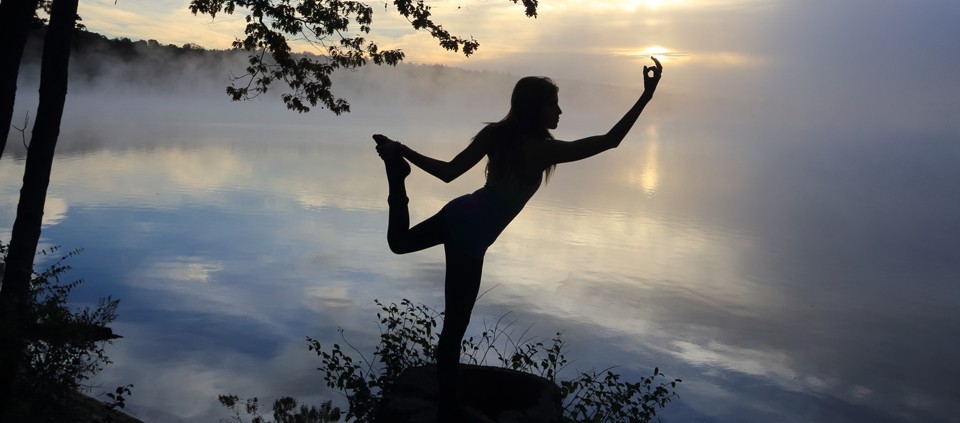Sunshine, Wind, Water, Earth: The Benefits of Practicing Yoga in Nature

Kripalu School of Mindful Outdoor Leadership
For the vast majority of our 200,000-year existence as modern humans, we have been nomadic hunters and gatherers, immersed in nature. We co-evolved with nature; we were shaped, influenced, and adapted to interact and resonate with the wild. Being in nature—even a relaxed walk through a meadow, a hike in the forest, or a paddle on a lake—allows us to come back into relationship with our original blueprint, nourishing our senses and our souls with a symphony of stimulus that grounds us firmly in the present moment.
Recent research suggests that “dis-ease,” often presenting as depression, stress, insomnia, and/or attention deficit disorder, might be symptoms of what author Richard Louv terms “nature deficit disorder.” Japan has been well ahead of the curve in recognizing this and, in the 1980s, developing and prescribing a nature therapy called shinrin-yoku, which translates as forest bathing, to help restore balance. Time spent in nature, especially in forests rich in conifers, exposes us to a class of naturally occurring, highly beneficial chemicals called phytoncides, which have been shown to reduce blood pressure and the stress hormone cortisol, and improve immune function by building the natural killer (NK) cells that fight disease. These results are lasting and measurable up to a month following a single two-hour forest bathing experience. We are fortunate that Kripalu is situated in the midst of a forest replete with white pine and hemlock, so we can reap these benefits while walking through the woods or drifting on the lake near the tree-lined shore.
In our outdoor programs, we weave yoga and nature together in a way that dissolves the boundaries between them. We experience all the gifts of the practice within the nurturing embrace of sunshine, wind, water, and earth. Imagine winding your way down a leafy wooded trail, pausing beneath a stand of hemlocks to move into Balancing Half Moon or Tree pose—opening the intercostal muscles to increase lung capacity so you can drink in the revitalizing phytoncide-rich air. Or practicing Sun Breaths or floating meditation in a kayak, as you’re carried effortlessly by the breeze across the waters of Lake Mahkeenac. Nature connection diminishes our level of disturbance and increases our sphere of awareness, bringing us closer to our ancestral world and to ourselves.
Transitioning from the indoor yoga studio to the floating kayak or paddleboard can also reignite a welcome state of playfulness that sometimes has gone dormant in our adult lives. Play is a vital part of being human at any age. Scientists have found that being playful relieves stress, unlocks creativity, forms new neural pathways, nurtures connection, and cultivates empathy.
Seeing how effortlessly yoga translates into the outdoor environment inspires us to bring the practice into other aspects of life, and reminds us of our deep and timeless roots in nature.
Explore trainings with Mark Roule in the Kripalu School of Mindful Outdoor Leadership.
© Kripalu Center for Yoga & Health. All rights reserved. To request permission to reprint, please e-mail editor@kripalu.org.
Mark Roule, RYT 500, is a Kripalu Yoga teacher and outdoor guide who holds qigong teacher certifications with the Elixir Light and IIQTC schools, and is certified by the Association of Nature and Forest Therapists.
Full Bio and Programs